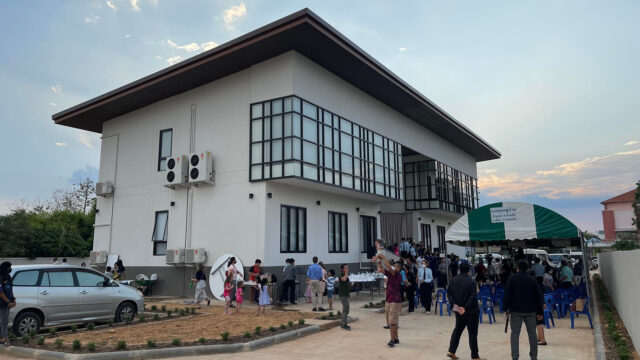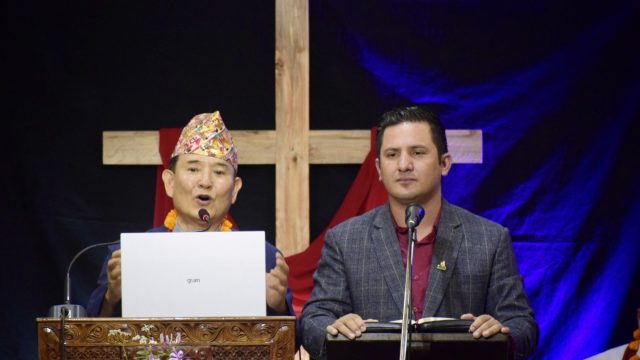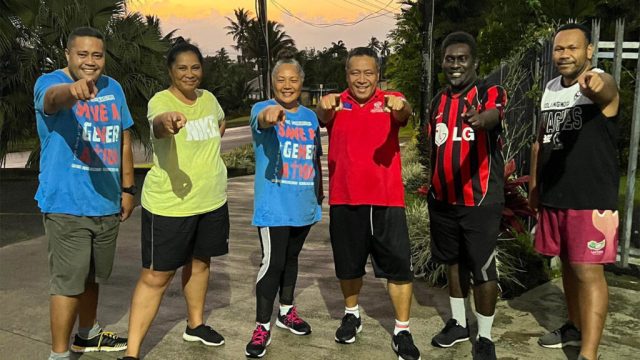LLUH has supported Paul Wilson’s efforts to lead an impactful life.

When a construction injury left Paul Wilson a quadriplegic, he didn’t let the condition define his future.
In 1989, at 32 years old, Wilson found he couldn’t use his legs and only had minimal use of his arms. He dried his tears and turned to the words of his track and field coach for guidance: judge a person by how they respond to a challenge. You can either give up and fall by the wayside or rise to the challenge and build a better life with what you have.
Over the next 34 years, Wilson did just that. He earned multiple college degrees, started and ran several businesses, became an advocate for public handicap accessibility, traveled internationally, supported his family, and accomplished much more.
Though his journey did come with struggles, including two surgeries at Loma Linda University Health to correct heterotopic ossification (HO) — a condition that often affects individuals with quadriplegia, leading to abnormal bone growth in muscle tissue — Wilson has been able to lead an impactful life.
After a roof truss struck Wilson during a routine construction inspection, he fell to the ground, dislocating his neck. Doctors gave him a 20 percent chance to live. In the weeks following the accident, Wilson endured a collapsed lung, pneumonia, and six weeks on life support.
By the time he was transferred to a rehabilitation center, realization of his condition had set in, awakening his determination to improve as much as possible.
“I worked hard at every task,” Wilson said. “I had to relearn everything, from brushing my teeth to picking up something as small as a sponge. When they would give me 10 reps of an exercise, I would do 20. If they said do 15, I did 30.”
Wilson’s work ethic and tenacity for excellence began years before his rehabilitation stay. As a natural athlete, Wilson was an All-American in track and field and All-CIF basketball Allstar, winning numerous accolades such as California State Champion in track and field long jump, second in the nation at a national track meet; and he was even inducted into the Sports Hall of Fame at Idaho State University for Basketball and Track and Field.
It was this athletic determination that helped him excel during his nine-month rehab stay, in which his hard work was rewarded with a medical scholarship to cover seven months of in-patient care.
Nearly a year after his injury, Wilson found himself viewing the world from a new perspective. “When I left rehab, I had no idea what someone with my kind of injury could do with their life,” Wilson said. “So, I decided to go back to school.”
A few years later, Wilson completed his bachelor’s degree in finance from Idaho State University. Over the next 25 years, he continued his studies at various colleges and universities, earning numerous degrees, including an associate’s degree in political economics, and a professional Master of Business Administration — graduating with honors.
Although Wilson remained active in his daily life, the slow progression of HO caused his hip and knees to twist in a way that had him sitting crooked in his wheelchair.
“I was stiff as a board and looked really bad,” Wilson recalled. “Instead of my knees pointing straight when I sat, they pointed to the side, which was the only way I could sit. And I was sweating with pain,” he added. “I’d have to wear two shirts, one underneath to absorb all the sweat, and one on top that would hopefully stay dry.”
The HO had developed so severely that his hip was fused to the point where he could hardly sit up in his wheelchair, and several doctors were hesitant to perform the surgery, citing the severity of his X-rays as the reason. However, in 2009, Wilson underwent his first HO surgery with orthopaedic surgeon Thomas Donaldson.
The surgery successfully corrected Wilson’s hip, allowing him to sit straight in his wheelchair again and relieving him of the daily, excruciating pain he had endured for so long.
He was also able to continue working at the construction company he started after graduating, completing crucial projects. “I would oversee public works jobs, such as installing elevators, building handicap ramps, creating signage, and setting up automatic doors — along with many other wheelchair-accessible projects,” he said.
However, the HO slowly grew back, once again shifting his knees to the side and causing him a lot of pain.
“I was going to Dodger games, Laker games, and even the Newport Beach Jazz Festival, just drenched in sweat from the pain,” Wilson said. “My hip was in such bad shape that it twisted my entire body to the right, and one of my feet was slipping off the wheelchair’s footrest.”
Wilson endured the gradual progression of HO before undergoing another surgery with Donaldson in 2019, which once again resolved the issue. “Although a surgery like heterotopic ossification does not resolve the quadriplegia, it can restore freedom of mobility and improve a patient’s quality of life,” Donaldson said.
Now, five years later, Wilson remains free of HO, with his knees aligned straight and the pain gone.
“I’ve been in my wheelchair for over 35 years,” Wilson said. “Even though I’m not glad the spinal cord trauma happened, I never let it slow me down. In fact, I sped up!”
The original version of this story was posted on the Loma Linda University news site.











